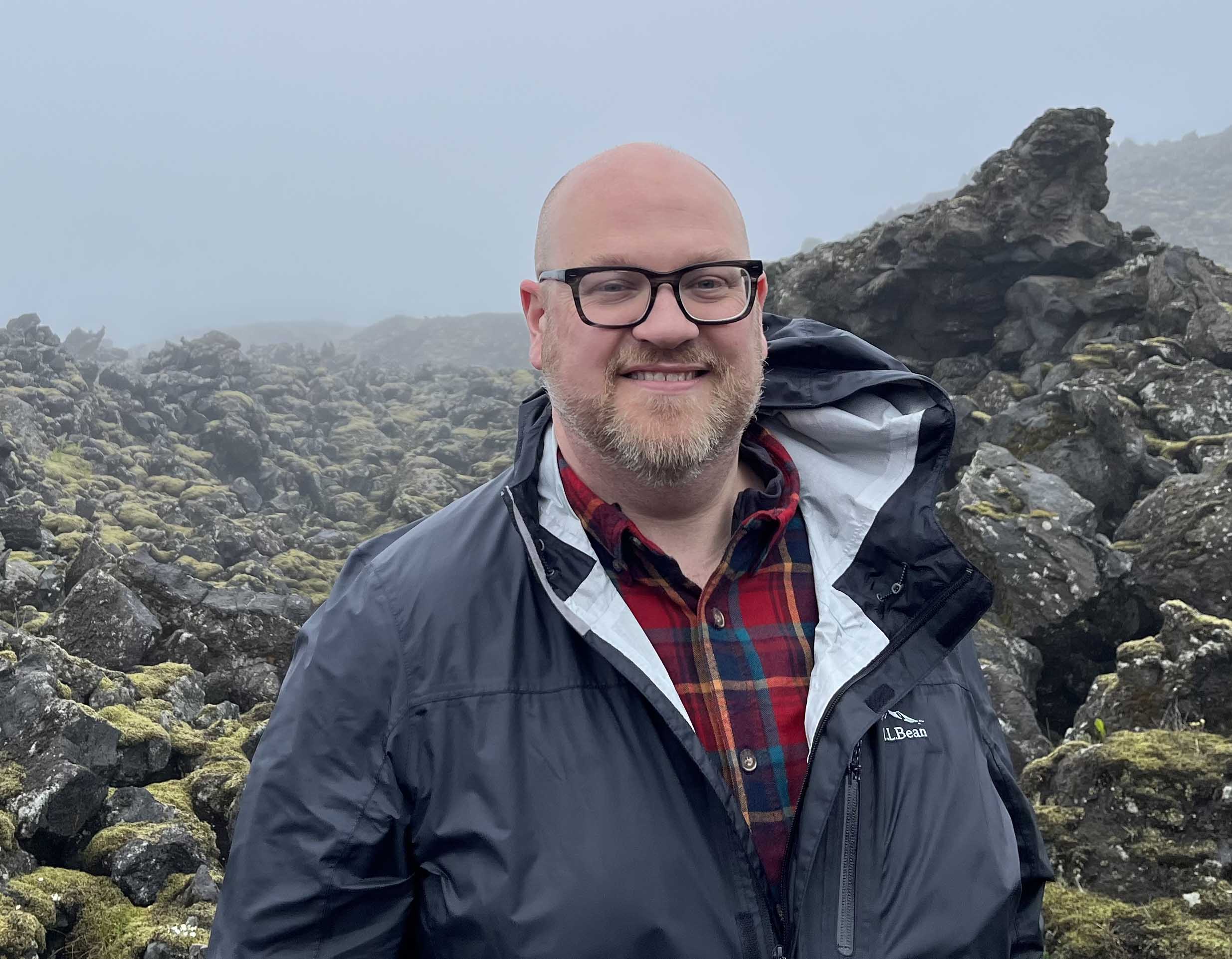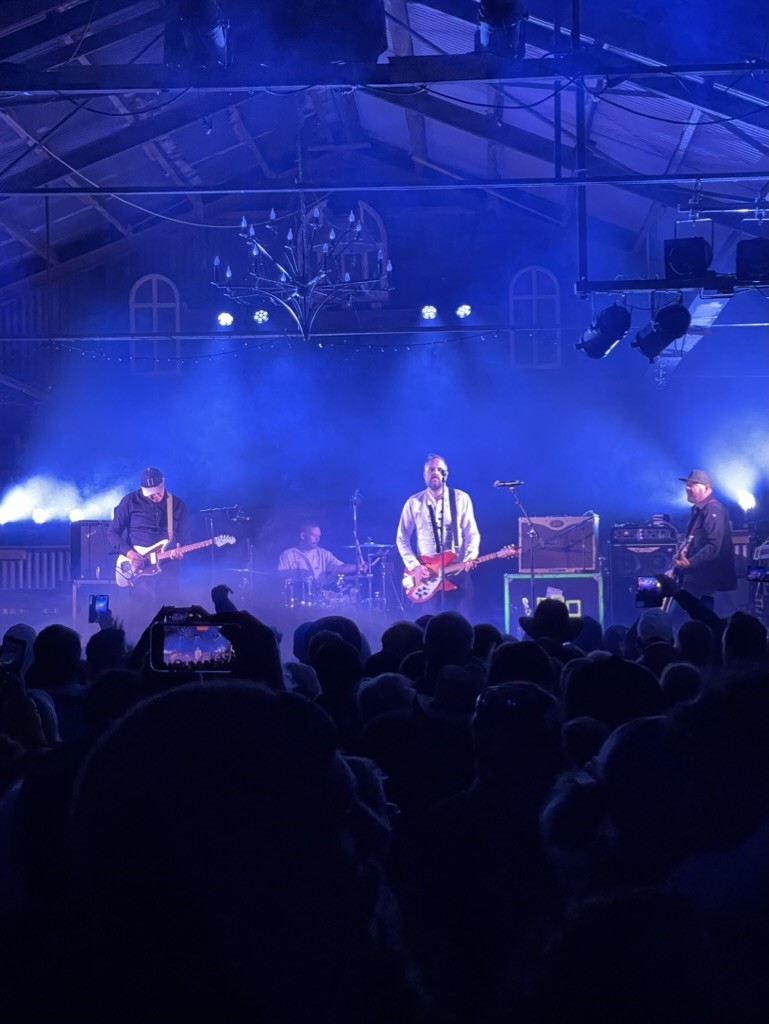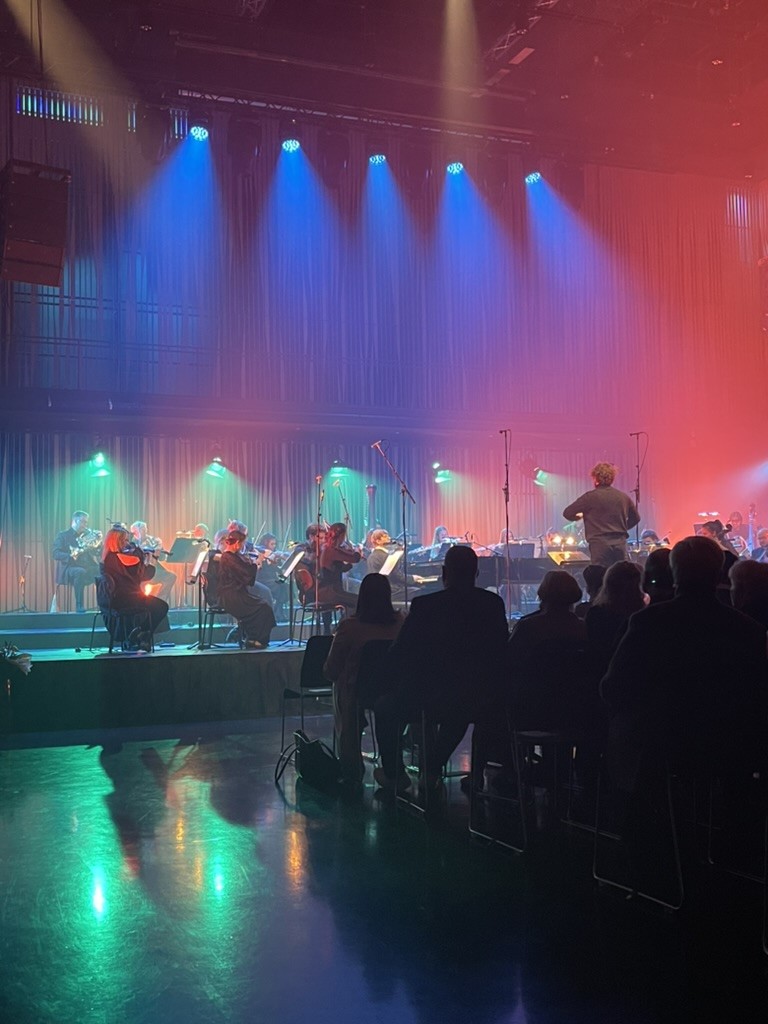Land of fire and ice: Wayne State University music professor delves into Icelandic music

It was a trip to Iceland in 2014 that piqued Jeremy Peters’ interest in the Scandinavian country's music scene.
There for the world-famous Iceland Airwaves music festival, Peters was fascinated with the small island nation that is known for its prominence in music genres — from classical to EDM — and birthplace of music icons Björk, Of Monsters and Men, Laufey, Sigur Rós, and more.
The experience stayed with Peters, who joined Wayne State University in 2018 in the College of Fine, Performing and Communication Arts’ Department of Music. A couple of years into his role, he decided to begin researching the unique culture of Icelandic popular music.

It took a couple tries, but after using feedback from reviewers, Peters received funding for his proposal from WSU’s Office of the Vice President for Research's (OVPR) Arts and Humanities Research Enhancement Program.
"It's a humanistic project and an arts project, in that it deals with music," Peters said. "It deals with talking to individuals about how they feel like they themselves have sort of enacted and constructed their way and understanding of how they operate and get by and promote themselves and create music or support others that create music."
Peters knows a thing or two, as well, having spent decades in the music industry. After getting an internship at the record label Ghostly International as an undergraduate student, Peters spent almost 15 years with them working on the business side of things, including distribution and royalties.
"I looked at the first iTunes contract that they had, back in 'ye old days' of digital music and did retail marketing,” Peters said. “I also got really into intellectual property and music licensing — putting songs in TV shows, video games and films. Basically, managing the process of getting rights approved and doing contracts, getting our artists paid any time somebody else, other than us, wanted to use the music.”

The OVPR funding enabled Peters to go to Iceland for three months. As a key part of his research, he attended music festivals and interviewed musicians and others in the industry. For Institutional Review Board reasons, Peters can't reveal his sources but said he's done around 50 formal and informal interviews ranging from recording engineers and venue managers to film composers and solo artists.
This professional experience with the licensing process aided Peters with his current research. He said Iceland, as a country, has worked to encourage and enable both creative industries and those in them to thrive through a mix of high radio royalties and support for musicians to build their careers outside of Iceland.
"There's a tax credit for recording your pop music, recording an album in Iceland, so you get a tax refund on the expenses there, which goes along with the film production tax credit that they've had for a long time," he said. This pairs with other grants the Iceland Music Export office makes to Icelandic musicians and radio royalties collected by STEF. There’s investment in both the music industry and the musicians to support them nationally and internationally.
And while Iceland's population is only about 376,000, the country's impact on the film music industry is another aspect of Peters’ research.
"There's lots and lots of examples of films where the scenes are Iceland in the background, so that might be ‘Game of Thrones’ … and there's a million examples of that.” Peters said. “But they really focus on the creative industry, and all of this is in the context of a country that is half the population of Detroit.”
The TV and film side of the music is not something that has been explored academically or written about on the same scale as its pop counterpart, Peters said.

"While there's been some research, and there are a number of books that are in process or coming out on Icelandic music and then Icelandic popular music — I met some of those authors over the course of this time — nobody's really written yet about film and TV music composition,” Peters said. “There are some big names in film and TV music that are Icelandic musicians.”
These include Golden Globe winner and Oscar Nominee Jóhann Jóhannsson who composed music for "The Theory of Everything," "Sicario" and "Arrival;" Hildur Guðnadóttir who won an Oscar for Best Original Score for "The Joker" and composed for "Tár" and Ólafur Arnalds who won a BAFTA award for his album for the TV drama, "Broadchurch."
Peters said he has enough research to keep working on authoring academic papers, while also working to write something more in depth.
"The sort of sound associated with Icelandic composition and some musical aspects that haven't necessarily been written about, either. I think it's sort of fresh to maybe be working on a book," he said. "I'm currently talking to publishers right now about publishing a book on the people, activity, and industry surrounding film and TV composition — with Iceland as its center — and the music itself."
Story by Kate Vaughn, communications student assistant for the College of Fine, Performing and Communication Arts.